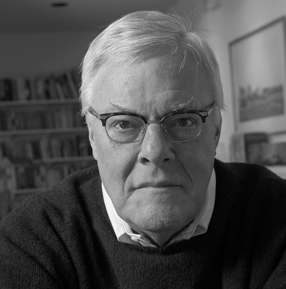E.H.
Sometimes I stand in the middle of the floor,
Not going left, not going right.
—Stephen Sondheim
I like to get drunk and I like to write.
I search for ways in and can’t find them,
But that doesn’t mean they’re not there. What isn’t
There is the life between the words, the life that existed
Beyond the words, the life I don’t have anymore.
In Michigan the feelings soaked the page,
Yet now they seem diminished in the telling
And no longer in our time, no longer of our place,
But in another country, one of an imagination
Anchored in a style; no longer in the stream
Or swamp, where the fishing was tragic.
I (whichever I this is) saw Follies last year.
The Weismann Girls come back to stand for what they were
And aren’t anymore, in a theatre slated for demolition.
Sally is a prisoner of her rage and her imagination,
Pining for the magic of what might have been
Until the spell breaks, leaving her alone on the stage
Amid the shards of her illusions. As she looks around
For what she is, all she can find is her age:
“I’m forty-nine. That’s all I am.”
Why do I get so angry? Why do I assume
The characters I love, the characters I love and hate?
There’s a corruption from which I’ve never recovered
That diminishes me each day, until I can’t tell which I am
Anymore, the mask or the face. The boat in Havana:
Last time was the last time. The stirring begins each night
And continues through the day here in a home that isn’t home,
With Michigan far away, the finca far away, alone
In the vestibule in the early morning light, imagining
The feeling of cool steel against my forehead
And the sound of two drawers slamming.
I’m sixty-two. That’s all I am.
Copyright © 2013 by John Koethe. Used with permission of the author. This poem appeared in Poem-A-Day on September 20, 2013. Browse the Poem-A-Day archive.
"I was reading an interesting book called Hemingway's Boat by Paul Hendrickson around the same time I saw a revival of Stephen Sondheim's Follies on Broadway. My way of writing is basically associative, and Hemingway and Sondheim's character Sally seemed to me pathetic and heartbreaking in different ways, and I would up putting them together in this poem. —John Koethe

